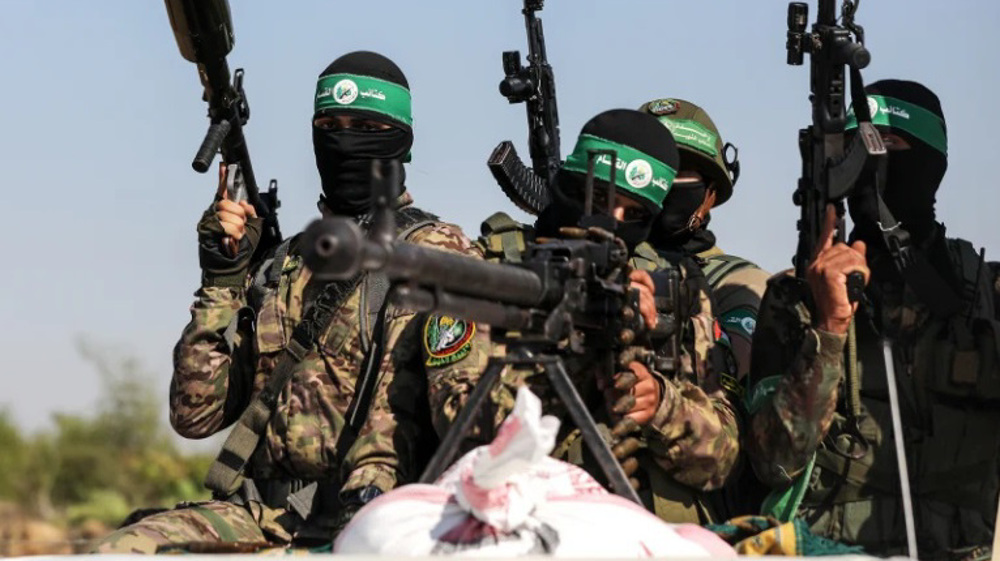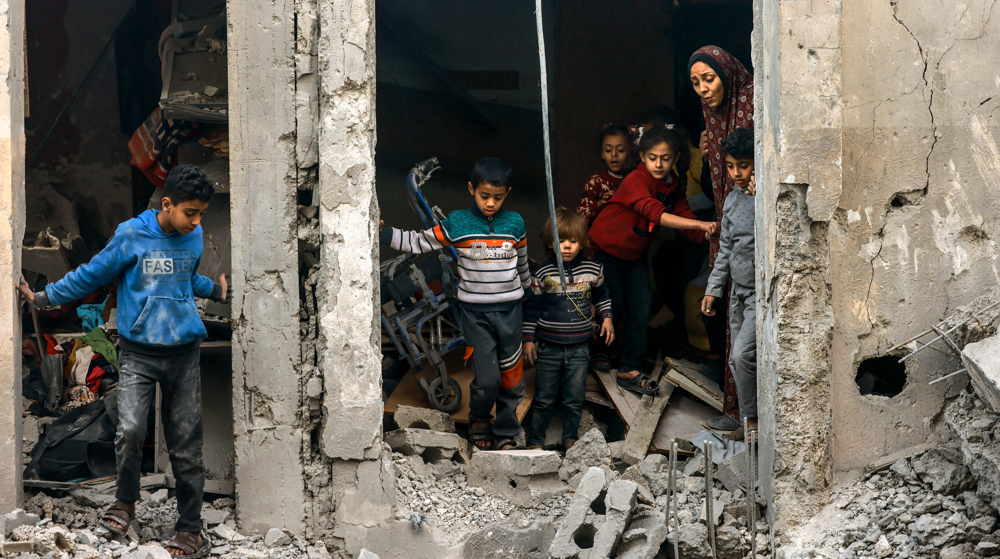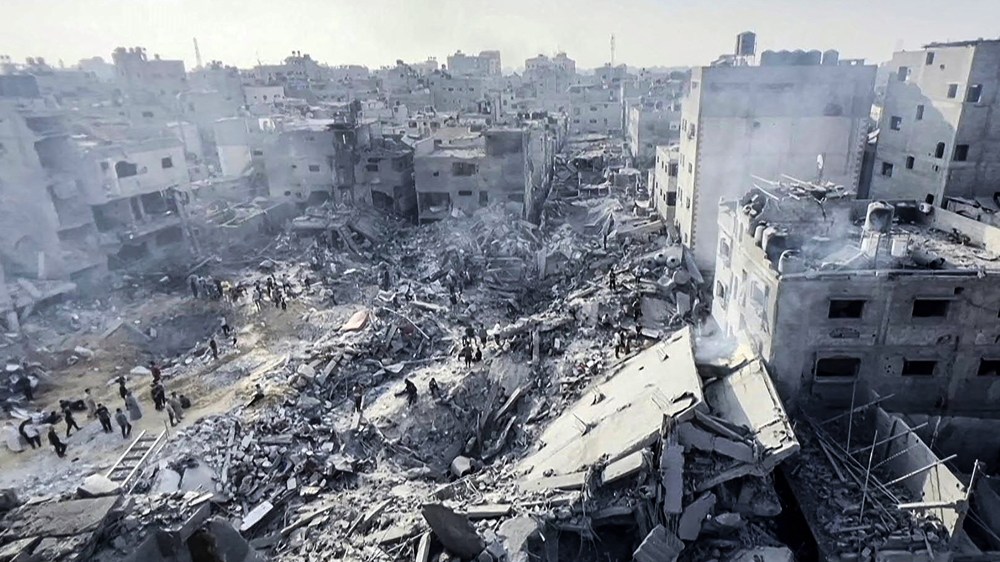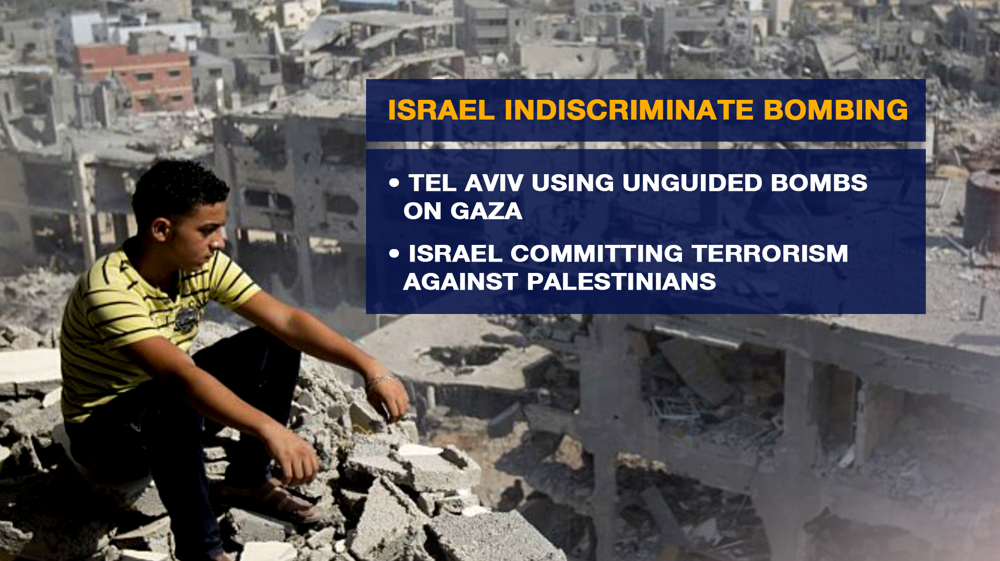Israel bombed areas it directed Palestinians to for 'safety': Analysis
Israel has bombed several areas in the Gaza Strip to which it had directed Palestinians to “seek safety,” a new analysis shows.
A CNN analysis has found that the regime’s forces struck at least three locations in the Palestinian territory to which it had ordered civilians to evacuate, since a fragile ceasefire ended earlier this month.
On December 1, the military released a map that was divided into 623 numbered blocks, indicating areas it would imminently strike, and areas to which civilians should evacuate.
It made the map available online via a QR code printed on leaflets dropped over the territory.
The map was described by the military as “a safe way to preserve your security, your lives, and the lives of your families.”
Residents of Gaza are told to “please pay attention and check this map,” while following “instructions of the IDF through various media outlets,” read the leaflets using an acronym for Israel’s military forces.
The analysis by the American news network, however, shows that the instructions have – at times – been imprecise and confusing.
Regular updates by the military, CNN wrote, highlight numbered blocks in orange, urging citizens to evacuate these locations, and move to other areas labeled on the map.
But some of the messaging has been contradictory, it added.
The military told civilians to leave the north of the Gaza Strip at the beginning of its war on Oct.7, claiming that it wanted them to seek safety in southern areas. The scope of evacuation orders has now confined Palestinians to less than one-third of the Gaza Strip — one of the most densely populated places on earth.
As the population was pushed to pack together much more tightly, the regime’s military dropped “one of its biggest and most destructive bombs” in areas in the south of the Gaza Strip during the first six weeks of the war, a visual investigation by the New York Times shows.
“The findings reveal that 2,000-pound bombs posed a pervasive threat to civilians seeking safety across South Gaza.”
Another assessment from the Office of the Director of National Intelligence earlier this month said that nearly half of the air-to-group munitions used by Israel in its aggression in Gaza have been unguided, also known as “dumb bombs.”
According to rights groups, the use of 2,000-pound bombs in an area as densely populated as Gaza means it will take decades for communities to recover.
In the first month of its bombardment of Gaza, Israel dropped hundreds of massive bombs, many of them capable of killing or wounding people more than 1,000 feet away, another assessment by CNN shows.
Satellite imagery from those early days of the war reveals more than 500 impact craters over 12 meters (40 feet) in diameter, consistent with those left behind by 2,000-pound bombs.
The war on Gaza has so far killed more than 20,000 people, including 8,000 children.
A UN expert warned on Friday that Tel Aviv is seeking to permanently alter the composition of Gaza’s population with ever-expanding evacuation orders and widespread and systematic attacks on civilians and civilian infrastructure in southern areas of the territory.
“Israel has reneged on promises of safety made to those who complied with its order to evacuate northern Gaza two months ago,” said Paula Gaviria Betancur, Special Rapporteur on the human rights of internally displaced persons (IDPs).
“As evacuation orders and military operations continue to expand and civilians are subjected to relentless attacks on a daily basis, the only logical conclusion is that Israel’s military operation in Gaza aims to deport the majority of the civilian population en masse.”
Since the onset of Israel’s bombardment of Gaza, 1.9 million people – 85 percent of Gaza’s population – have been internally displaced.
The regime's mass evacuations have raised fears of yet another “Nakba” or “catastrophe,” which refers to the occupying regime’s violent expulsion of about 750,000 Palestinians from their homeland when it proclaimed its illegal existence on May 15, 1948.

Israel's ‘internal security agency’ acknowledges failure to prevent al-Aqsa Storm

Israel’s Ben Gvir to Netanyahu: Bomb aid deliveries into Gaza

Arab League endorses Egypt’s Gaza reconstruction plan at Cairo summit
VIDEO | Press TV's news headlines
VIDEO | Belgian journalist lambastes Israeli aggression against Palestinians
VIDEO | Yemen warns Israel of military response over Gaza aid block
Israel's ‘internal security agency’ acknowledges failure to prevent al-Aqsa Storm
Russia: Threats of using military force against Iran’s nuclear sites ‘unacceptable’
VIDEO | Ramadan in Iran
VIDEO | Trump's controversial moves
VIDEO | Yemen downs 15th sophisticated American drone; vows to keep up support for Gaza, Lebanon










 This makes it easy to access the Press TV website
This makes it easy to access the Press TV website